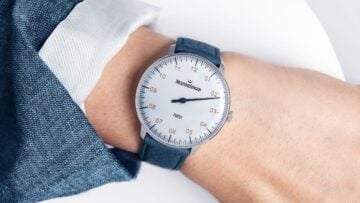Fitness trackers are all the rage at the moment and they aren’t just popular for the way they look. Heart rate monitors are one of the most popular features of Fitbit, Garmin and Apple fitness trackers. Most people fully trust their heart rate monitor to give them accurate information for their workout, but it’s difficult to know just how accurate they are.
A number of recent studies have attempted to check the accuracy of your fitness tracker. By the end of this article you should have more of an idea of whether or not your heart rate monitor is nonsense!
How Accurate is Your Heart Rate Monitor
The accuracy of your heart rate monitor varies depending on a number of different factors, but a recent study has shed doubt on the accuracy of wrist based heart rate monitors. The study published in JAMA Cardiology was carried out with 50 healthy adults and found variable accuracy across different brands and models.
The researchers wrote that: “We found variable accuracy among wrist-worn HR [heart rate] monitors. In general, accuracy of wrist-worn monitors was best at rest and diminished with exercise.”
The study was carried out with 4 different models – the Apple Watch, the Mio Alpha, the Fitbit Charge and the Basis Peak. They were carried out under various different levels of physical exertion in order to find out how precise they were. It found that the Basis Peak overestimated the heart rate by around eight beats per minute under moderate exercise. The Fitbit Charge HR underestimate by around six or seven beats per minute during vigorous exercise. They also found that the Apple Watch and Mio Alpha were within 27 to 29 beats over or under the actual heart rate 95 per cent of the time, the Fitbit’s range was 24 and 39 while the Basis Peak was between 33 and 39.
What’s the Advice?
The advice from medical experts is that heart rate monitors strapped to the users chest are much more accurate than those strapped to the wrist. They advise that medical patients must use a monitor strapped to the chest in order to assure safety. The findings from the study suggest that wrist monitors should only be used recreationally and their accuracy is “suboptimal” even during moderate exercise.
The CEO of Fitabase, Aaron Coleman, Fitbit’s research partner, has stated that the further a heart rate monitor is from the heart – the more vulnerable it is to variance in accuracy. Which means that a wrist based monitor is unlikely to be entirely accurate. It is important to bear this in mind if you do need to monitor your heart rate for medical purposes.
However, if you are only wish to use your heart rate monitor to help keep yourself motivated then a wrist based heart rate monitor might be invaluable. As Joshua Klapow, Ph.D told Shape Magazine, “if you want to stick to a new habit, monitoring is one of the best ways to make a change.” So – while it may not always give you the most accurate reading, it may still be a good idea to pick up a fitness tracker today!







